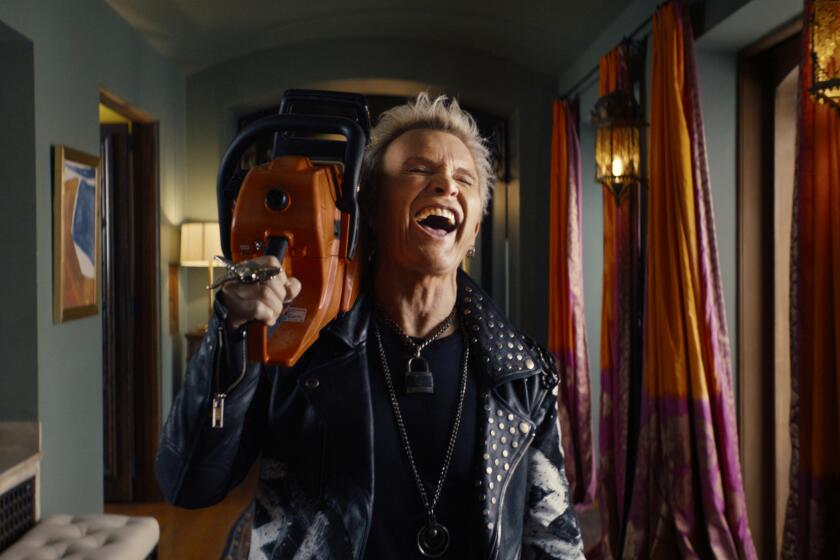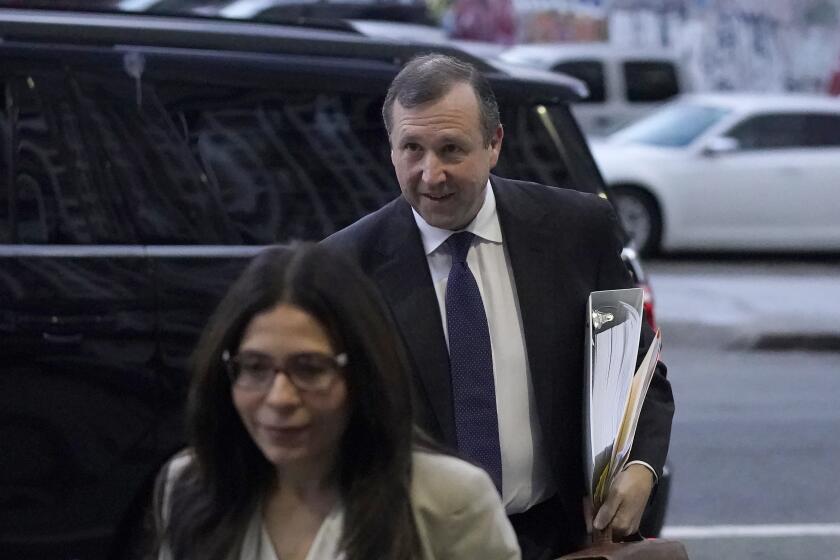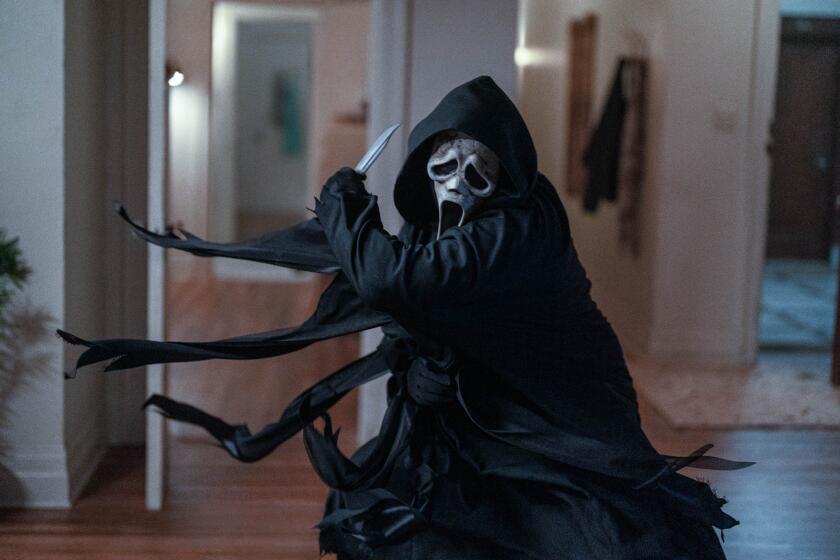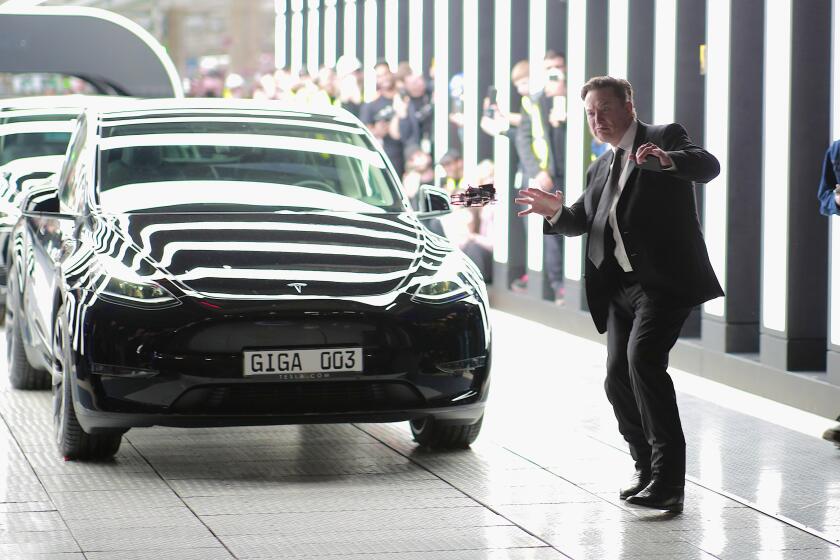California billionaire ramps up attack on Elon Musk’s Tesla with Super Bowl ad
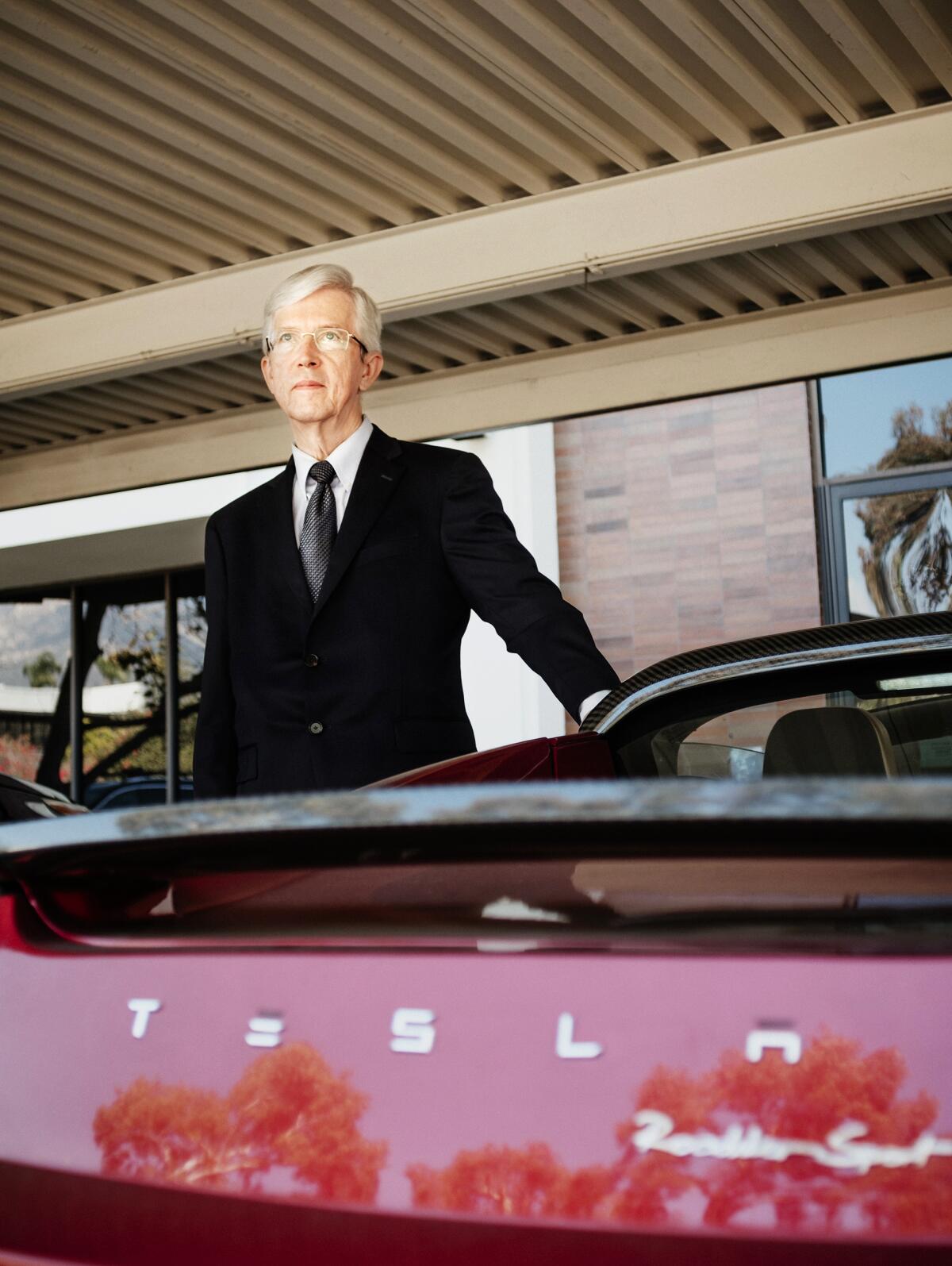
- Share via
A California billionaire has ramped up attacks on Tesla by running a Super Bowl ad questioning the safety of the carmaker’s self-driving technology.
The 30-second commercial shows the electric cars crashing into child-sized mannequins, driving past a stopped school bus and hitting strollers in a parking lot while a narrator proclaims that “Tesla’s Full Self-Driving is endangering the public.”
The ad is the latest in what has been a yearlong campaign by tech executive Dan O’Dowd to have Tesla’s Full Self-Driving technology, or FSD, barred from the roads and push lawmakers to increase scrutiny of the technology’s safety. O’Dowd founded a campaign dubbed the Dawn Project to speak out against Tesla, as well as bugs and security defects in other computer systems.
The organization has run a full-page ad in the New York Times and posted similar videos online, but the newest video ran during one of the nation’s most-watched sporting events, in which a 30-second commercial was reported to cost $6 million to $7 million.
Even Jesus got the light treatment, and godlike celebrities clowned and shilled, during the real action of Super Bowl LVII — the ads, of course.
“Elon Musk has released software that will run down children in school crosswalks, swerve into oncoming traffic and hit a baby in a stroller to all Tesla owners in North America,” O’Dowd said in a statement. “Tesla’s reckless deployment of Full Self-Driving software on public roads is a major threat to public safety.”
O’Dowd, founder of Green Hills Software, a Santa Barbara-based company that builds computer operating systems, also ran an unsuccessful campaign for the U.S. Senate last year that focused primarily on Tesla’s self-driving technology, calling it “reckless” and “unsafe.”
Tesla did not immediately respond to a request for comment about the Dawn Project’s ad and campaign. Musk has in the past called O’Dowd and his criticism “crazy” in a tweet, which was preceded by a bat and a poop emoji.
Tesla and the Dawn Project have clashed under similar circumstances before, when the campaign published another video last year also asserting that the self-driving software from Tesla would run over children in tests conducted by the group.
In August, Tesla issued a cease-and-desist letter to the Dawn Project, demanding it take down the video and issue a formal retraction. Tesla also accused the group of “misleading advertisements” and pointed to questions about the test and whether the self-driving software had been engaged at the time of the tests.
Elon Musk took the stand on Friday in a trial examining whether a tweet he sent in 2018 intentionally misled Tesla investors. Musk argued that his tweets don’t necessarily affect stock price.
O’Dowd publicly rebuffed the letter, calling it “bizarre,” and defended the tests made by his organization, saying the data from them have been made publicly accessible
“We have disclosed the methodology followed during the safety test and a full analysis of the results, together with signed and notarized affidavits from participants,” O’Dowd wrote in a response to Tesla. “Any observer can review and judge for themselves whether our tests were ‘results driven’ or whether the results should drive all of us to demand that FSD be taken off the road until its many life-threatening flaws are fixed.”
The Dawn Project’s newest spot ran during the Super Bowl in Washington, D.C.; Sacramento; New York; Austin, Texas; Tallahassee, Fla.; and Atlanta and, according to the group, was meant to appeal to lawmakers to ban Tesla’s FSD.
In the ad, a Tesla vehicle is seen driving past “Do Not Enter” and “Road Closed” signs, and past a parked school bus with stop signs posted. It also shows the vehicle crashing into child-sized mannequins and strollers.
As of Monday, Tesla has not directly addressed the ad or contacted the Dawn Project about the video, a spokesperson for the organization told The Times.
Trailers for ‘Transformers: Rise of the Beasts,’ ‘Guardians of the Galaxy Vol. 3,’ ‘Scream VI’ and other films aired during the Super Bowl.
Shortly after the commercial aired Sunday, however, Musk responded on Twitter to comments about the ad, stating it would “greatly increase public awareness that a Tesla can drive itself (supervised for now).”
In another tweet that called the testing done by the Dawn Project “fake,” Musk responded with a laughing emoji.
In a statement, the Dawn Project says it is appealing to the National Highway Traffic Safety Administration and the Department of Motor Vehicles to ban the software until faults in the system are identified and fixed.
“Tesla continues to focus on features and marketing gimmicks, not fixing critical safety defects,” O’Dowd said in the statement.
The ad is just the latest challenge Tesla has faced in recent months.
The California DMV has accused Tesla of false advertising in its promotion of the company’s signature Autopilot and Full Self-Driving technologies.
On Thanksgiving, video surveillance obtained by the Intercept showed a Tesla Model S changing lanes on San Francisco’s Bay Bridge, then suddenly coming to a stop, prompting an eight-car pileup.
In August, the California DMV accused Tesla of falsely advertising its self-driving technology.
The feature, which is available for $15,000, is supposed to enable the vehicle to drive on freeways, city streets and neighborhood roads on its own while obeying traffic laws.
But according to the DMV complaint, Teslas can’t currently “operate as autonomous vehicles.”
The feature, however, has been a central part of the company’s future. In June, Musk asserted that without FSD, Tesla is “worth basically zero.”
More to Read
Sign up for Essential California
The most important California stories and recommendations in your inbox every morning.
You may occasionally receive promotional content from the Los Angeles Times.
